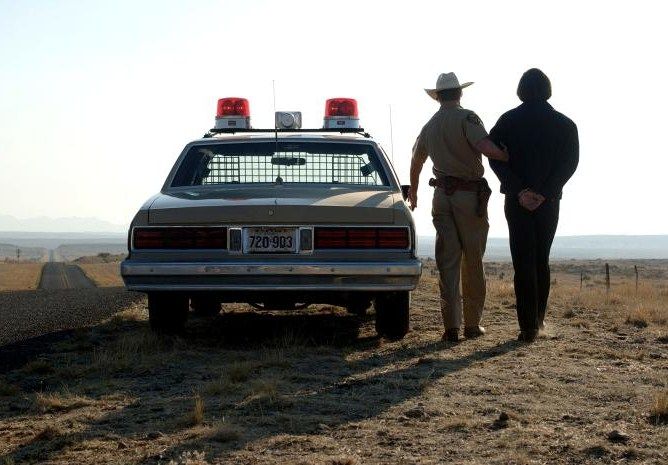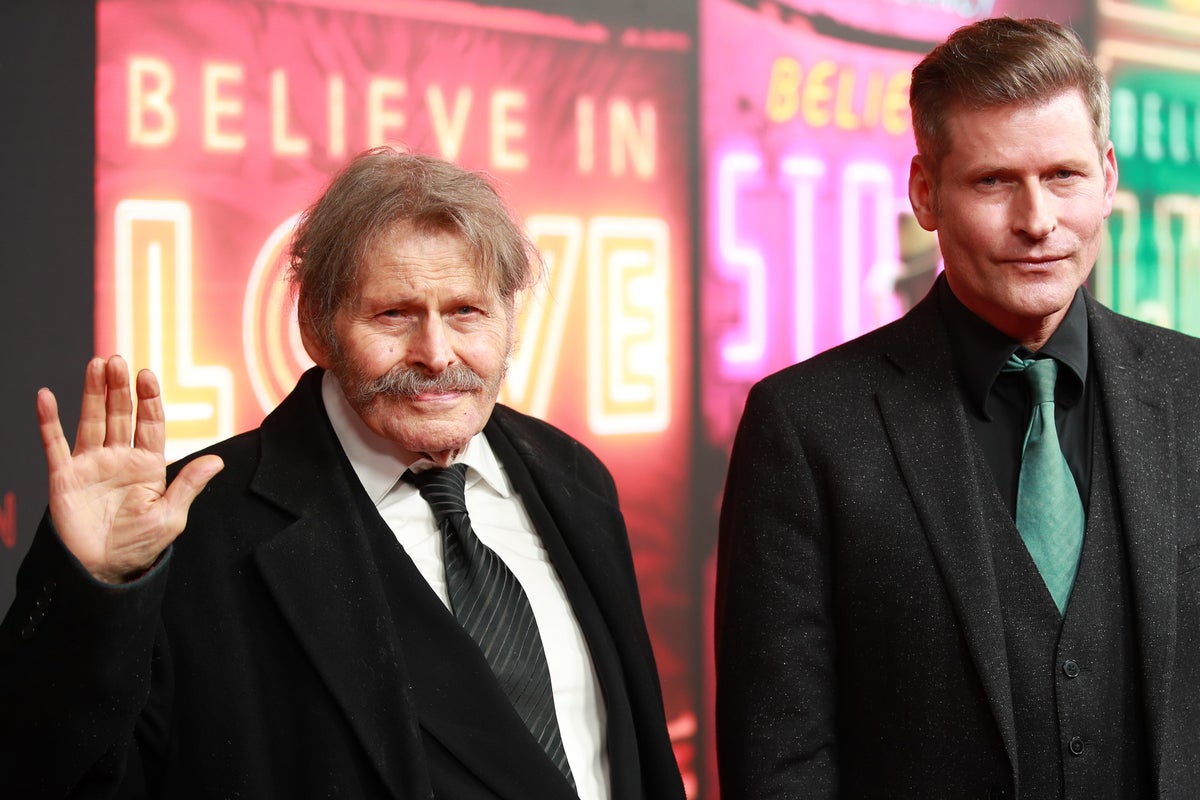
Television has a unique way of forging deep, almost familial bonds with its characters. We invite them into our homes week after week, season after season, watching them grow, stumble, and triumph. So, when a beloved character meets their end, it often feels like a personal loss, a moment that resonates long after the credits roll. Yet, there’s a particular kind of TV death that, despite the tears it might provoke, leaves viewers with a sense of grim satisfaction: the ‘coldly logical’ death. These aren’t random acts of violence or plot devices thrown in for shock value; they are the inevitable conclusions to complex character arcs, narrative necessities that, in hindsight, were written on the wall from the very beginning.
These deaths, though undeniably sad and often brutal, serve as powerful testaments to exceptional writing. They underscore the harsh realities of the fictional worlds they inhabit, demonstrating that actions have consequences, that certain paths lead to unavoidable ends, or that some characters simply cannot exist beyond a specific narrative function. In a medium often criticized for contrivances or emotional manipulation, these logical departures stand out, elevating their shows from mere entertainment to profound storytelling. They remind us that even in fiction, there is a powerful current of realism, a sense of destiny that characters, no matter how cherished, cannot escape.
Join us as we take a deep dive into some of the most impactful and, dare we say, necessary character exits in television history. We’re not just looking at who died, but *why* their demise was an essential, almost predestined part of their story, cementing their legacy and, in many cases, defining the very essence of the shows they left behind. These are the deaths that, while breaking our hearts, simultaneously made perfect, undeniable sense within the meticulously crafted universes of our favorite series.

1. **Eddard Stark on Game of Thrones** The death of Eddard ‘Ned’ Stark in the first season of *Game of Thrones* remains one of the most iconic and paradigm-shifting moments in modern television. For audiences unfamiliar with George R.R. Martin’s books, it was an absolute shock, a brutal severing of what appeared to be the series’ central moral compass and protagonist. Ned, portrayed by Sean Bean, was the honorable hero, the man whose integrity seemed destined to guide the audience through the treacherous political landscape of Westeros. His execution, orchestrated by the petulant King Joffrey, defied all conventional television tropes, instantly signaling that *Game of Thrones* was a show that played by its own ruthless rules.
Ned’s steadfast adherence to honor in a world utterly devoid of it was, in retrospect, his fatal flaw, making his death not just shocking but tragically logical. He arrived in King’s Landing naive to the true depths of corruption and ambition that permeated the court. His belief that truth and justice would prevail against deceit and power plays ultimately sealed his fate. He famously declared, “The man who passes the sentence should swing the sword,” a creed he lived by but one his killers cowardly ignored. His principles, while admirable, were ill-suited for the cutthroat game of thrones.
The profound impact of Ned Stark’s death cannot be overstated. It skillfully set the table for all the carnage that was to come, establishing a terrifying precedent: if the hero of *Game of Thrones* could die, then *anyone* could die. This single event taught viewers to watch through splayed fingers, understanding that no character, no matter how beloved or seemingly central, was safe from the narrative’s grim logic. It fundamentally changed how audiences approached epic fantasy television, creating an environment of perpetual tension and unpredictability that defined the show for years.
His departure wasn’t just a plot twist; it was a foundational statement about the series’ themes. It hammered home the brutal reality that virtue alone is not enough to survive in a world driven by power, manipulation, and selfish ambition. Ned’s death cemented *Game of Thrones*’ reputation as a groundbreaking, no-holds-barred drama, one that dared to subvert expectations and sacrifice its leads to serve a larger, more intricate story. It was heartbreaking, but it made perfect, undeniable sense.
Read more about: Unraveling the Ancient Secrets: The Mystery Behind House Stark’s Legendary Greatsword Ice, From Valyrian Steel to White Walker Prophecy
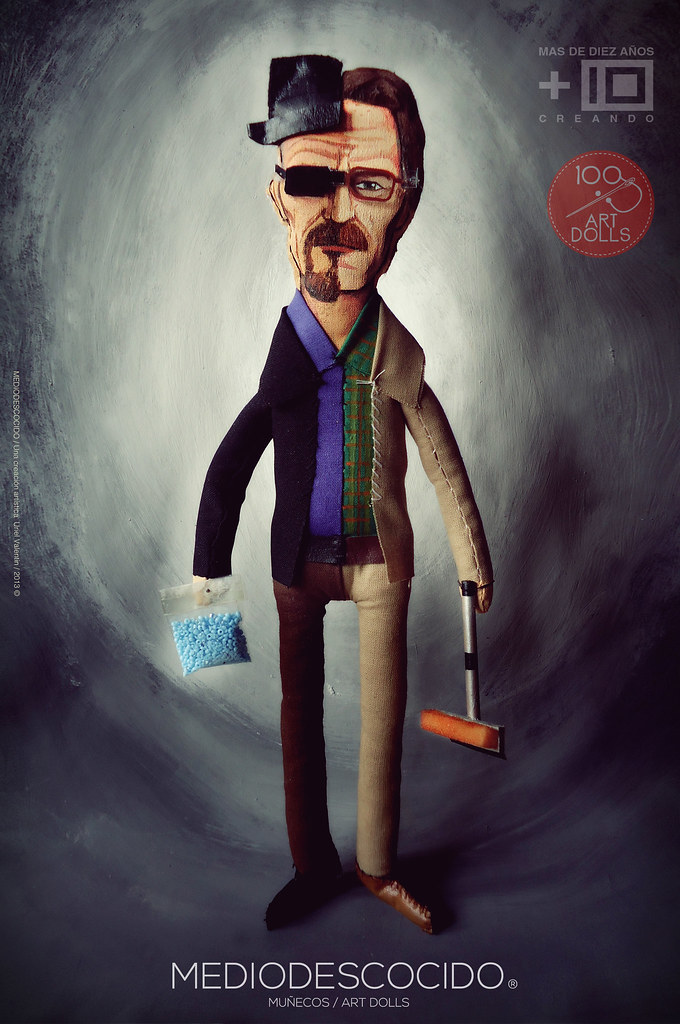
2. **Walter White on Breaking Bad** Walter White’s journey from mild-mannered chemistry teacher to ruthless drug lord is perhaps one of the most compelling character transformations in TV history, and his eventual demise in the series finale of *Breaking Bad* felt sealed from the very first episode. From the moment he decided to cook meth to secure his family’s financial future, Walt embarked on a path of moral compromise and escalating violence, gradually shedding his humanity for the guise of Heisenberg. By the series’ conclusion, he had committed countless awful acts, alienating his family, destroying lives, and becoming the very monster he once claimed to be fighting against.
His fate was an almost classical tragedy, an inevitable consequence of his ambition, pride, and ultimately, his insatiable desire for power. The choices he made, driven initially by a perceived necessity but later by pure ego, accumulated into an unmanageable debt of karma. There was no realistic scenario where Walter White could walk away from his empire, his enemies, and his crimes unscathed. To have him survive would have undermined the entire arc of the series, cheapening the profound exploration of good turning evil. His story demanded a final reckoning, a definitive end to his reign of terror.
Despite the sheer number of terrible things he had done, Walt still managed to go out on his own terms, achieving a perverse form of redemption or, at the very least, a final act of control. He successfully eliminated his enemies, orchestrated Jesse’s freedom, ensured his family’s financial security (albeit through terrorizing Elliott and Gretchen), and ultimately died doing what he loved – cooking meth. This ending, while perhaps not conventionally ‘happy,’ was meticulously crafted to provide a sense of closure that resonated with the character’s core motivations and the series’ grim logic.
Walt had nothing left to prove by the time he collapsed from a gunshot wound in the meth lab, surrounded by the equipment that defined his transformation. His death wasn’t tragic in the traditional sense; it was the logical culmination of a life lived on the edge, a self-destructive path chosen with open eyes. It was the only fitting end for a man who had truly gone ‘all in,’ leaving viewers with a powerful, albeit dark, sense of completeness for one of television’s most complex anti-heroes.
Read more about: The Perfect Chemistry: 14 On-Screen Duos So Electrifying, They Made You Forget What You Were Even Watching!

3. **Rita Bennett on Dexter** Rita Bennett, Dexter Morgan’s kind-hearted wife, was the innocent anchor in a life built on blood and deception. Her death at the hands of the Trinity Killer in the spectacular fourth season of *Dexter* was a gut-wrenching moment that profoundly impacted both the titular serial killer and the audience. However, looking back, Rita’s survival for as long as she did was perhaps more surprising than her eventual demise. Married to a serial killer who targets other serial killers, living in a world where Dexter’s two lives were constantly on a collision course, she was inherently in peril.
Dexter’s fatal mistake was leaving Rita unprotected as he went to war with the outstanding John Lithgow’s Trinity Killer. His relentless pursuit of Arthur Mitchell, coupled with his increasing obsession and carelessness, created the perfect storm for tragedy. Dexter’s inability to fully separate his dark passenger from his attempts at a normal life meant that those closest to him were always vulnerable. Rita, unknowingly caught in the crossfire of his vigilante justice, became the ultimate casualty of his double life. Her death was a direct consequence of Dexter’s choices and his dangerous profession.
The narrative logic here is brutally clear: in a show centered around a character who lives by a strict code of killing, the collateral damage was always a looming threat. Rita represented the domestic normalcy and emotional connection that Dexter desperately sought but could never fully integrate with his true nature. Her removal from the equation served to further isolate Dexter, stripping him of the last vestiges of a ‘normal’ existence and pushing him deeper into his isolated world. It was a dark, unavoidable turning point for the series, a stark reminder of the cost of Dexter’s chosen path.
Her heartbreaking end underscored the show’s core themes about the impossibility of true normalcy for someone like Dexter. Rita never truly had a chance at a peaceful life with him, not with the lurking shadow of his secret. Her death, while devastating, meticulously served the plot by demonstrating the ultimate price of Dexter’s secret life and the tragic consequences of his war against other serial killers, a battle that directly led to an innocent’s demise.
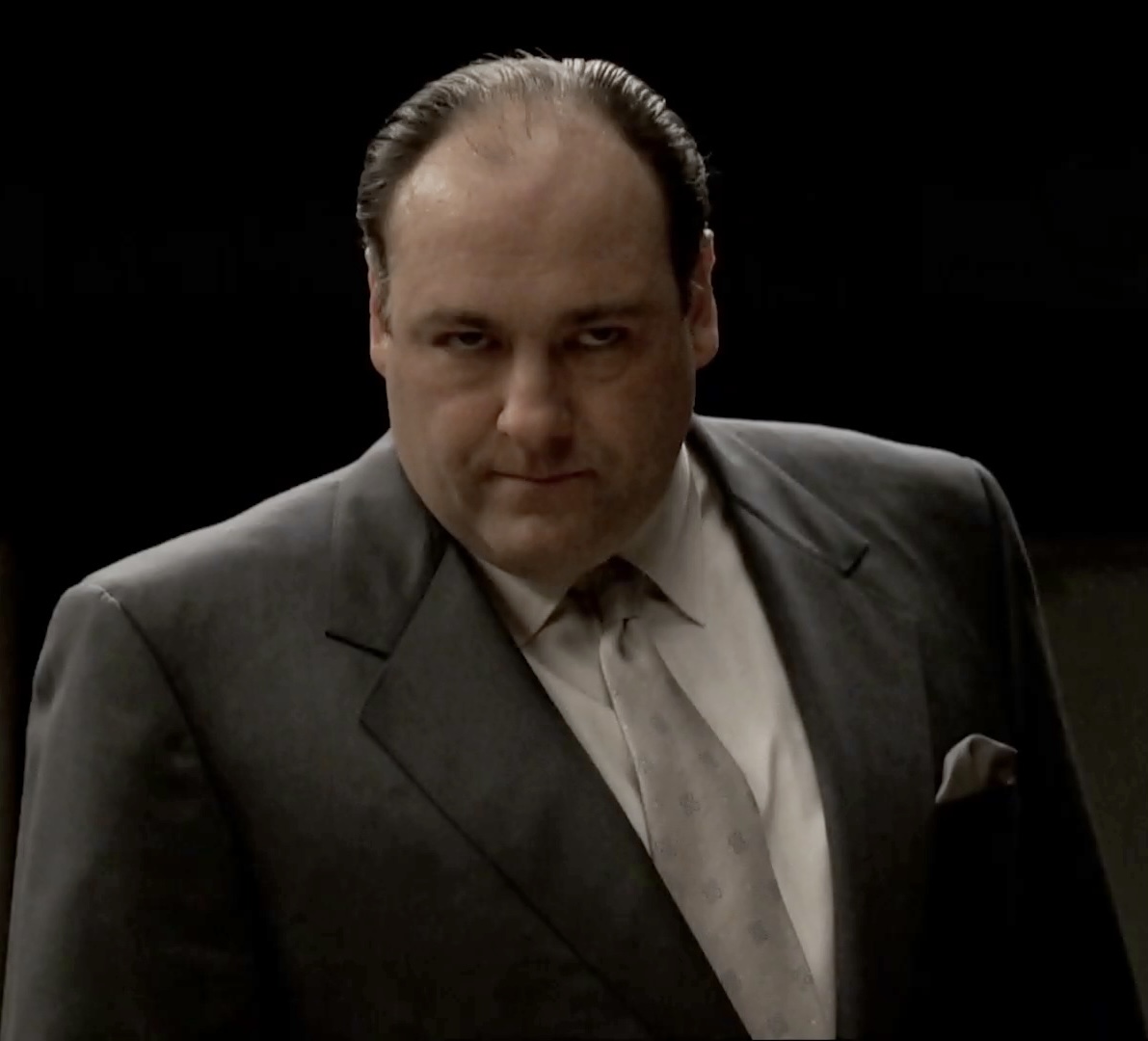
4. **Tony Soprano on The Sopranos** The final moments of *The Sopranos* remain one of the most debated and analyzed endings in television history, but for many, the conclusion is clear: Tony Soprano died at Holsten’s. While creator David Chase famously kept the exact nature of the cut-to-black ambiguous for years, he more or less confirmed Tony’s demise 15 years later, noting, “What was annoying was how many people wanted to see Tony killed. That bothered me.” Regardless of the explicit confirmation, the logic within the world of *The Sopranos* dictated that Tony’s violent life would inevitably lead to a violent end.
Tony lived by the sword and gun, embodying the mantra: live by the sword and gun, die by the sword and the gun. As a mob boss, he operated in a brutal, unforgiving world where betrayal, vengeance, and sudden death were simply occupational hazards. Even if he hadn’t died in that diner, the constant threat from rival families, internal power struggles, and the ever-present eye of the law meant his days were always numbered. His life was a perpetual tightrope walk over an abyss of violence, making a peaceful retirement an impossibility within the narrative’s gritty realism.
The show meticulously illustrated the psychological toll and inherent dangers of his chosen profession. Tony was a man constantly looking over his shoulder, grappling with anxiety and depression rooted in the violent realities of his existence. To have him escape the consequences of his actions would have betrayed the very fabric of the show, which consistently portrayed the cyclical, self-destructive nature of the mob lifestyle. His death, in its quiet, sudden potentiality, was arguably one of the most logical outcomes, even if it left a void in the hearts of viewers.
In a way, Tony Soprano’s exit was one of the more peaceful TV deaths available to him, if it indeed was a death. Eating onion rings and listening to Journey with his family, it was a moment of fleeting normalcy before the probable inevitable. This ambiguous but logical end perfectly encapsulated the show’s nuanced portrayal of a mob boss who was both a monster and a man, leaving a legacy of unparalleled writing and a lingering sense of his unavoidable fate.
Read more about: Stealing the Spotlight: 14 Actors Who Turned a Minor Role into a Major Win and Redefined Their Careers
5. **Everyone on Six Feet Under** *Six Feet Under* was a show inherently about death, about processing grief, and about the messy, beautiful reality of life lived in the shadow of mortality. Its premise, revolving around a family running a funeral home, ensured that death was not just a theme but a constant presence. Therefore, it was not merely logical but narratively essential that the series itself would culminate in a breathtaking montage of death, showcasing the eventual passing of all its main characters. This finale is widely regarded as one of the best, most emotional, and indeed, most logical endings in television history.
The show’s journey was always leading to this grand, comprehensive conclusion. Each character’s life was meticulously explored, their struggles and triumphs laid bare, often with the specter of death informing their choices. To simply end their stories without showing their ultimate fates would have felt incomplete, a betrayal of the show’s central philosophical inquiry into life’s finite nature. The finale didn’t just end the series; it completed a cycle, providing a profound sense of closure by demonstrating that no one, not even our beloved characters, escapes the universal truth of death.
This decision to fast-forward through the lives and deaths of the Fisher family and their loved ones was a bold artistic choice, yet it felt entirely earned. It provided a powerful, cathartic release, illustrating that life continues, changes, and eventually concludes for everyone. The beauty of this montage lies in its affirmation of life despite death, showing how each character lived out their days, found love, pursued passions, and ultimately met their end, often with a quiet dignity or a poignant irony that reflected their individual journeys.
The collective deaths served as the ultimate punctuation mark on a series dedicated to exploring the human condition through the lens of mortality. It solidified *Six Feet Under*’s status as a masterclass in emotional storytelling and thematic consistency. The ending wasn’t just a powerful emotional punch; it was the only fitting, truly logical way for a show so deeply intertwined with the concept of mortality to conclude, offering an unforgettable and uniquely complete narrative experience.
Read more about: Beyond the Red Carpet: Unpacking 14 of Hollywood’s Most Eye-Popping Age Gap Romances That Defy Expectations

6. **Gale Boetticher on Breaking Bad** Gale Boetticher, the sweet, naive, and musically inclined meth maker from *Breaking Bad*, seemed almost too innocent for the ruthless world he inhabited. His death in Season 4, at the hands of Jesse Pinkman, was a pivotal moment, and in hindsight, a coldly logical one, despite his gentle nature. Gale’s meticulousness and skill in the lab made him a valuable asset to Gus Fring, but it also made him a dangerous pawn in the power struggle between Gus and Walter White. When Gus placed Gale directly in Walt’s path, essentially as Walt’s replacement, his fate became assured.
Gale represented a pure, uncorrupted form of scientific pursuit, tragically applied to the production of illicit drugs. He admired Walt’s chemistry skills, viewing him almost as a mentor, completely unaware of the deadly game being played around him. His existence became a liability for Walt, as Gus intended to use Gale to eliminate the need for Walt, thus securing Gus’s control and eventually leading to Walt’s own demise. For Walt to survive, Gale had to be removed from the equation. It was a brutal choice, but one dictated by the desperate circumstances.
The order to kill Gale, given by Walt to Jesse, was a direct act of self-preservation and a horrifying demonstration of how far Walt had descended into moral depravity. This act set off the spectacular cat-and-mouse fight between Walt and Gus in Season 4, a conflict that defined one of the show’s most intense periods. Gale’s death wasn’t a random act; it was the spark that ignited a much larger, more dangerous war, proving that in the criminal underworld, even the most harmless individuals can become sacrifices for strategic advantage.
It’s precisely this cold calculus that places Gale’s death on this list, and notably, why Gus Fring’s death isn’t. Gus, a master manipulator, could have easily won or lost, making his fate less predetermined. Gale, however, was an unwitting pawn, and once placed in that position, his inherent goodness and his accidental proximity to power guaranteed his tragic, yet logical, end within the high-stakes game of *Breaking Bad*’s criminal enterprise.

7. **Adriana LaCerva on The Sopranos** Adriana LaCerva, Christopher Moltisanti’s long-suffering fiancée, was a character whose vibrant personality and flawless style resonated deeply with audiences. Her tragic demise in Season 5 of *The Sopranos* remains one of the show’s most heartbreaking moments, but it was also steeped in the grim logic of the mob world. Adriana, though involved in the fringes of the criminal enterprise through her relationship with Christopher and her club, was fundamentally a good person, albeit one who made a few missteps like money-laundering and other small-time illicit activities. Her innocence, relative to the truly terrifying individuals she was surrounded by, ironically sealed her fate.
There’s an unwritten rule in many crime dramas: the most innocent person among a lot of terrifying people is often going to die prematurely. Adriana was ruthlessly exploited by the FBI, who used her love for a weak man, Christopher, to turn her into an informant. This dual pressure – loyalty to Christopher and the mob, versus the threat of prison and cooperation with the feds – tore her apart. Her unraveling was excruciating to watch, as she was trapped in an impossible situation with no true escape route, a pawn in a game far beyond her comprehension or control.
Her ultimate mistake was confessing her informant status to Christopher. In a world where loyalty is paramount and betrayal is met with swift, brutal justice, Christopher’s choice, however painful for him, was inevitable: he chose his criminal family over Adriana. This decision set in motion the chain of events that led to Silvio Dante driving her into the woods, where she was executed. The visual of her silently sobbing in the car, knowing her fate, is seared into the minds of viewers, making it one of the most poignant and heartbreaking scenes in the series.
The symbolism of her death, with her last name meaning “the doe” in Italian and her being killed in the woods, adds another layer of tragic logic. Adriana was a gentle creature caught in a brutal wilderness, a lamb led to slaughter. Her death, while devastating, reinforced the unyielding, unforgiving nature of the Soprano crime family and the absolute consequences of perceived disloyalty, proving that even those on the periphery could not escape the darkness that permeated their lives.
Now, let’s continue our deep dive into the compelling, often devastating, yet undeniably logical character exits that have left an indelible mark on television history. These are the deaths that, upon reflection, make perfect sense within the meticulously constructed worlds we’ve grown to love, even as they break our hearts.

8. **Christopher Moltisanti on The Sopranos**Christopher Moltisanti, Tony Soprano’s nephew and protégé, was a character defined by a volatile mix of ambition, insecurity, and crippling addiction. For years, viewers watched Christopher (Michael Imperioli) grapple with his desire to go straight and his deep-seated loyalty to the mob life, often falling short on both fronts. His hotheadedness, chronic unreliability, and constant battles with drug abuse made him a perpetual liability, a ticking time bomb within the tightly wound Soprano crew. The narrative consistently highlighted his struggle, painting a clear picture of a character whose self-destructive tendencies were always on a collision course with the brutal realities of his chosen profession.
Indeed, Christopher’s very nature made it almost impossible for him to survive in the unforgiving world of the mob. He was a constant source of frustration and danger for Tony, frequently compromising operations, drawing unwanted attention, and showing a disturbing lack of discretion. Despite Tony’s deep, paternal affection for him, the business of organized crime demands absolute loyalty, control, and competence – qualities Christopher consistently struggled to maintain. Every relapse, every impulsive decision, every betrayal of trust chipped away at the already fragile foundation of his existence within the family.
The final straw for Christopher, and the ultimate justification for his demise, came after a car crash with Tony, where he admitted he wouldn’t pass a drug test. This, coupled with his increasing inability to stay clean and his prior allowance of Adriana’s fate (even if coerced), made him an unmanageable risk. Tony’s decision to ‘whack’ Christopher, though deeply painful for him, was a cold, calculating choice driven by self-preservation and the need to protect the larger enterprise. It was the only logical outcome for a character who had become too dangerous to himself and everyone around him.
Christopher’s death further solidified *The Sopranos*’ reputation for unflinching realism and its commitment to the grim logic of the mob world. It demonstrated that even familial bonds could not trump the demands of the criminal underworld, and that personal failings, especially those that threaten the ‘family,’ carried the ultimate price. His tragic end wasn’t just a plot point; it was a profound statement on the inescapable consequences of a life entrenched in violence and addiction.
Read more about: Jerry Adler, Veteran of Broadway and Screen, Who Found Acclaim as an Actor in Late Life, Dies at 96
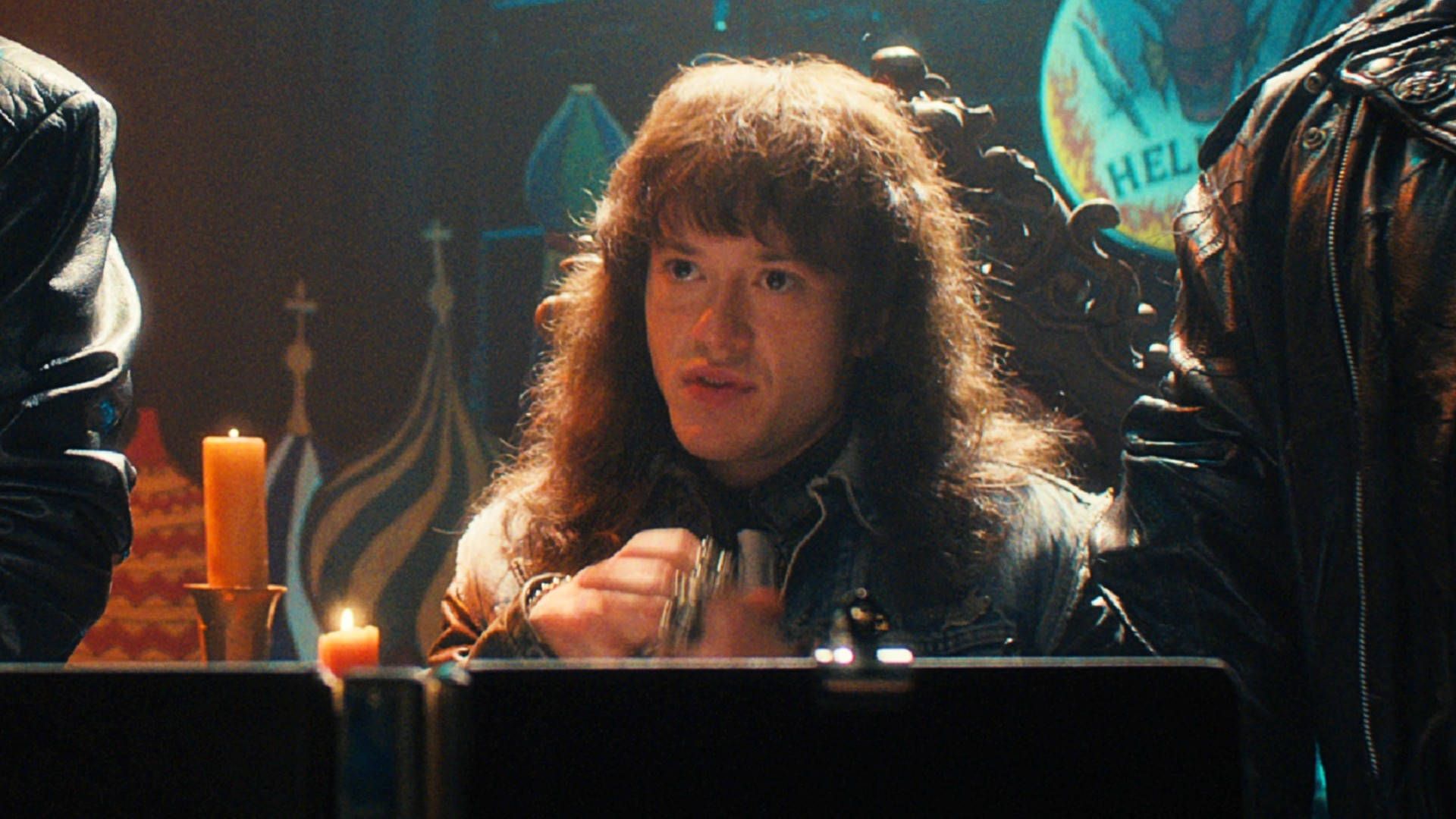
9. **Eddie Munson on Stranger Things**Eddie Munson burst onto the scene in *Stranger Things* Season 4 with an infectious charisma and an undeniable charm, quickly becoming a fan favorite. As the leader of the Hellfire Club, Hawkins High’s Dungeons & Dragons group, he instantly established himself as the sympathetic metalhead outsider. From his defiant attitude to his passionate speeches about embracing one’s true self, Eddie (Joseph Quinn) resonated deeply with audiences looking for a new hero. However, his very introduction, coupled with his inherently good nature, subtly foreshadowed a tragic yet logical arc for his character in the perilous world of the Upside Down.
His role as an outsider who bravely stands up for what’s right, often against misunderstanding and fear, set him on a path of heroic self-sacrifice. Eddie’s character arc was meticulously crafted to highlight the vulnerability of those who dare to be different in a world quick to judge. His innate goodness and willingness to protect his newfound friends, particularly Dustin, became the driving force behind his actions. He was a character who, despite his perceived ‘bad boy’ image, possessed an unshakeable moral compass when it mattered most, making his eventual heroic stand deeply consistent with his personality.
The moment of his demise was a testament to his courageous spirit. During the climactic battle against Vecna, Eddie made the ultimate sacrifice, drawing the attention of the demobats to save Dustin and the rest of the group. As the context states, “He courageously stood up to Vecna to save his new friends, sacrificing himself in the process, which was such an Eddie thing to do.” This wasn’t a random act of heroism; it was the logical culmination of his journey from a misunderstood outcast to a genuine hero. His death served as a powerful emotional beat, solidifying his legacy as someone who truly belonged, even if only for a short time.
Eddie Munson’s logical death, while heartbreaking, underscored the high stakes of *Stranger Things*’ narrative and the profound sacrifices required to protect Hawkins. It reaffirmed the show’s theme that heroism often comes at a steep personal cost, especially for those who rise unexpectedly to the occasion. His impact on the characters and the storyline was immense, ensuring that his memory, and his sacrifice, would continue to resonate with the fanbase long after his final, poignant moments.

10. **Joffrey Baratheon on Game of Thrones**King Joffrey Baratheon, the petulant and sadistic ruler of Westeros, was arguably one of the most detested characters in television history. As a cruel despot, he seemed to operate with a disturbing sense of impunity, fueled by his youth and royal status, which often appeared to grant him a form of ‘plot armor.’ Viewers grew accustomed to his arbitrary cruelty, from executing Ned Stark to tormenting Sansa, and many yearned for his comeuppance. Yet, the show’s genius lay in its ability to subvert expectations, making Joffrey’s eventual death, though desired, an unexpected and profoundly logical narrative twist.
In a world as brutal and unforgiving as Westeros, the reign of a tyrant like Joffrey was inherently unstable. While cruel despots tend to thrive for a while, their actions inevitably sow the seeds of their own destruction. *Game of Thrones* consistently demonstrated that power was not a shield against consequence, and even kings could fall. The show’s commitment to this harsh realism meant that Joffrey’s unchecked sadism, rather than granting him immunity, actually ensured his eventual, violent end. His demise, therefore, was not merely wished for by the audience but was a narrative inevitability within the show’s established universe.
His death at his own wedding feast, famously dubbed “The Purple Wedding,” was a masterstroke of dramatic irony and logical consequence. Poisoned by a meticulously planned conspiracy orchestrated by Lady Olenna Tyrell and Lord Petyr Baelish, Joffrey’s demise served as a brutal, yet satisfying, form of poetic justice. It demonstrated that even the most seemingly untouchable figures could be brought down by the machinations of those they had wronged or underestimated. The initial false accusation of Tyrion Lannister only added to the intricate web of deception that defined Westerosi politics.
Joffrey’s logically sound death profoundly impacted the series, creating a significant power vacuum and setting in motion new conflicts and alliances. It further solidified *Game of Thrones*’ reputation for fearless storytelling, proving that no character was safe, regardless of their perceived importance or villainy. His demise was a crucial turning point, confirming that the show would consistently prioritize narrative logic and consequence over conventional plot progression, even if it meant delivering the unexpected.
Read more about: From Red Carpet to Real Life: Celebrities Who Disappeared from Hollywood and Thrived
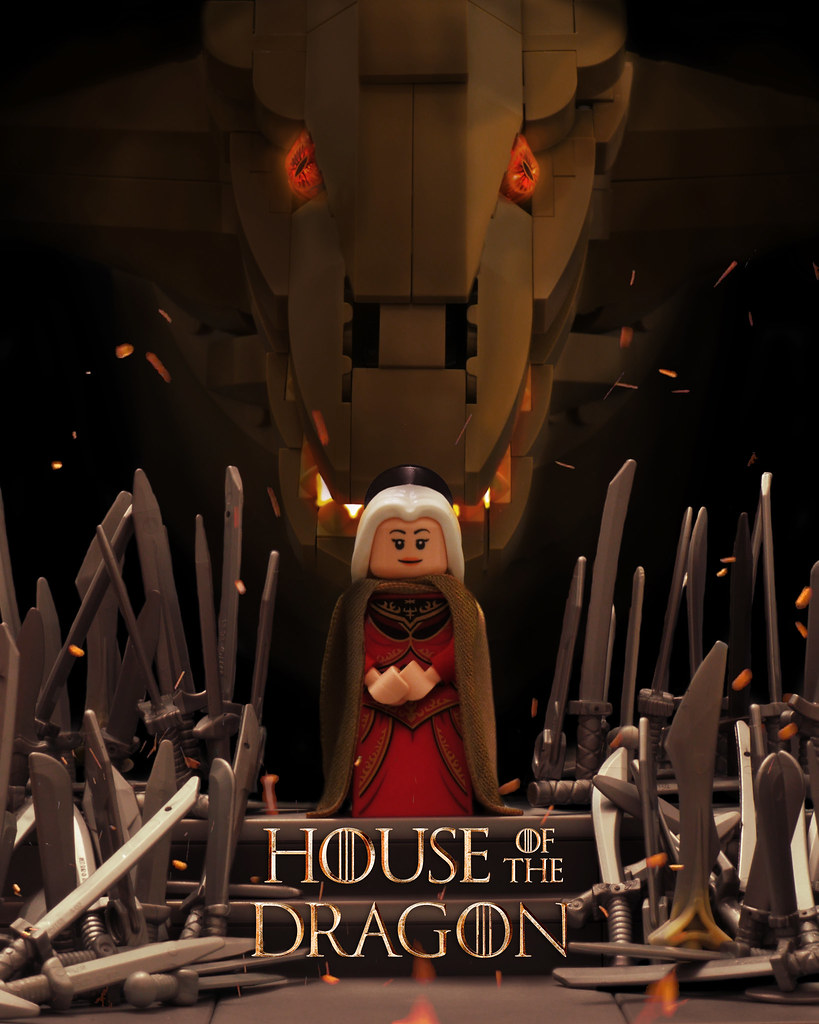
11. **Lucerys Velaryon on House of the Dragon**The prequel series *House of the Dragon* inherited *Game of Thrones*’ grim commitment to realism, and the death of young Lucerys Velaryon tragically affirmed this principle. As a child of Rhaenyra Targaryen, Lucerys (Elliot Grihault) was caught in the escalating political and familial conflict known as the Dance of the Dragons. While his youth and brave demeanor made his cruel and violent end particularly heartbreaking for viewers, the narrative trajectory of the series made his demise an inevitable, coldly logical conclusion once certain lines were crossed.
The seeds of Lucerys’s fate were sown in a prior conflict with his uncle, Aemond Targaryen, where Aemond lost an eye. This deep-seated animosity, fueled by years of resentment and the overarching succession crisis, created an inescapable tension between the two. The moment Lucerys, on his dragon Arrax, encountered Aemond and his much larger, more experienced dragon Vhagar in the storm-swept skies above Storm’s End, the die was cast. As the context pointedly notes, “it was inevitable the moment he crossed Aemond Targaryen. And once they boarded their dragons? As *The Sopranos* would say, fuhgetaboutit.” There was no turning back.
The dragon-back confrontation was a terrifying display of how personal grudges could escalate into devastating, uncontrollable violence. Aemond, consumed by a thirst for vengeance and the power of his massive dragon, inadvertently caused Lucerys’s death. This moment was not a random accident but the direct, logical consequence of the volatile mix of unresolved family feuds, political maneuvering, and the raw, untamed power of dragons. Lucerys, despite his bravery, was simply outmatched and caught in a storm of forces far beyond his control.
Lucerys Velaryon’s death was a pivotal moment, serving as the undeniable spark that ignited the full-blown civil war between the Blacks and the Greens. It was a brutal reminder that in this world, even innocent children could become casualties of power struggles, and personal slights could lead to continent-shattering conflicts. His demise, while profoundly sad, was a chillingly logical escalation, cementing *House of the Dragon*’s commitment to depicting the true, devastating cost of the Targaryen’s internecine war.
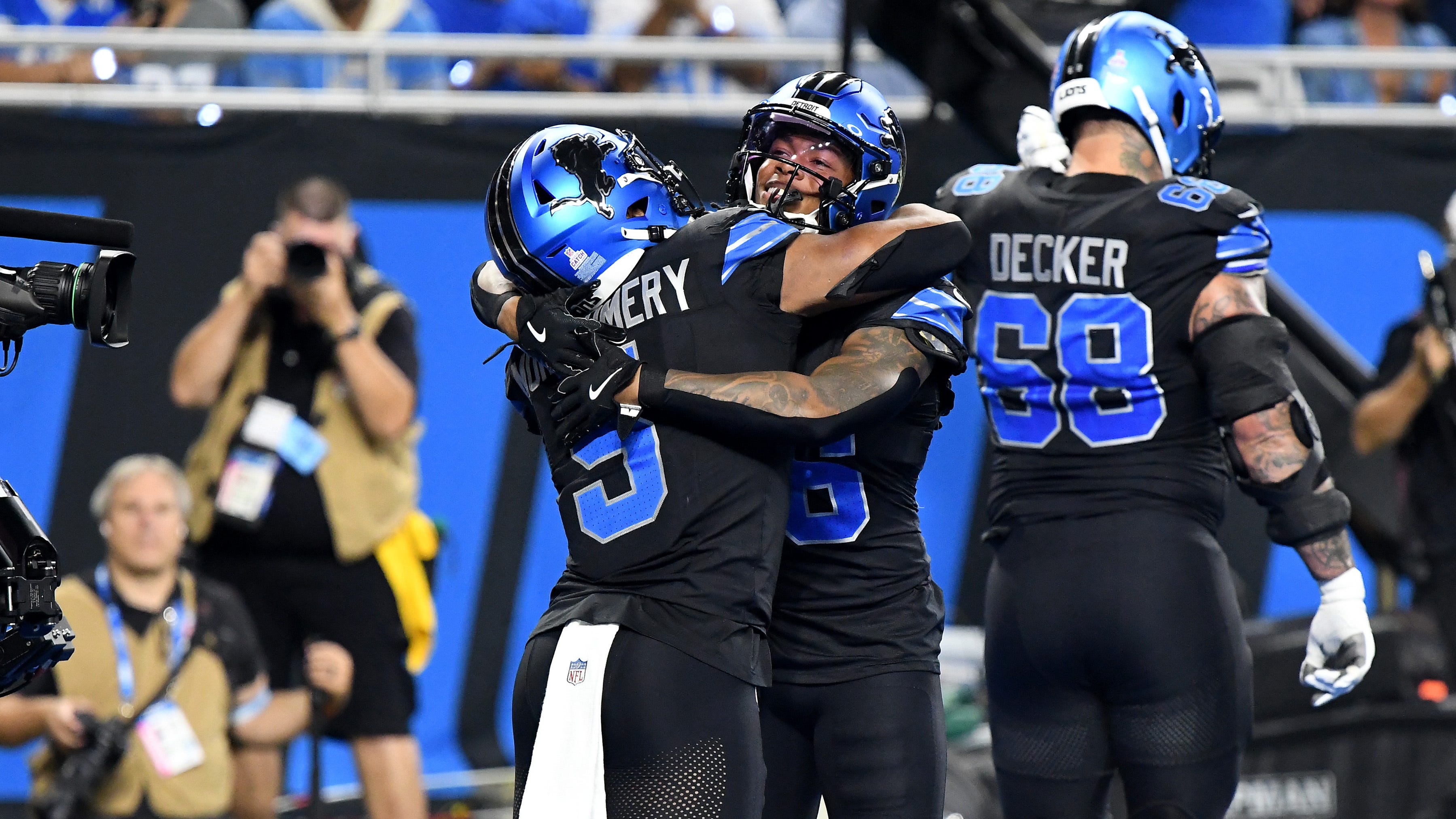
12. **Barry Berkman on Barry**Barry Berkman’s journey on *Barry* was a relentless exploration of whether a man could escape his violent past and truly reinvent himself. As a hired killer with a long list of enemies, it was hardly a shocker that his story would culminate in death. From the very beginning, Barry (Bill Hader) was caught between his desire for a normal life in the world of acting and the inescapable gravitational pull of his dark, murderous profession. Every attempt to shed his former identity only deepened the moral quicksand he found himself in, making a peaceful resolution increasingly improbable.
His mounting body count and the profound damage he inflicted on those around him, both intentionally and unintentionally, created an intricate web of consequences. Barry’s choices, driven by self-interest and a warped sense of self-preservation, meant that his past was always catching up to him, leaving a trail of destruction that demanded a final reckoning. While the exact manner of his death was a “huge ‘wow'” moment, as the context quotes Barry himself, the inevitability of a violent end for a character so deeply entrenched in murder was consistently foreshadowed and narratively justified.
Barry’s demise served as a definitive and brutally logical conclusion to his character arc. It underscored the show’s core theme that true escape from one’s nature, particularly when that nature involves professional killing, is ultimately impossible. His death was not about redemption in a traditional sense, but about the unyielding consequences of his actions, demonstrating that some paths lead to an unavoidable, violent end, regardless of a character’s aspirations for change or normalcy. His story had to end, and it had to end with the ultimate price being paid.
Furthermore, the decision by *Barry* star and co-creator Bill Hader to definitively end the character, rather than prolonging the series for additional seasons or potential reboots, speaks volumes about the commitment to narrative integrity. This creative choice reinforced the logical necessity of Barry’s end, prioritizing a complete and meaningful story over continued episodic adventures. It’s a testament to the show’s incredible creativity that it delivered an ending that was both shocking in its execution and perfectly logical in its thematic conclusion.
As we reflect on these ‘coldly logical’ TV deaths, it becomes abundantly clear why they resonate so deeply with audiences. They are more than just plot twists; they are masterclasses in narrative consistency, thematic reinforcement, and the art of consequence. These character exits, though often painful, provide a profound sense of completeness to their stories, reminding us that even in the fantastical worlds of television, there exists a powerful, undeniable truth: actions have consequences, and some fates, however tragic, are simply inevitable. They are the moments that truly define a series, cementing their place in television history and in the hearts of viewers who appreciate the beauty of a story perfectly told.


